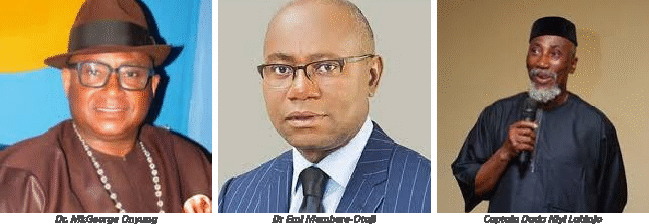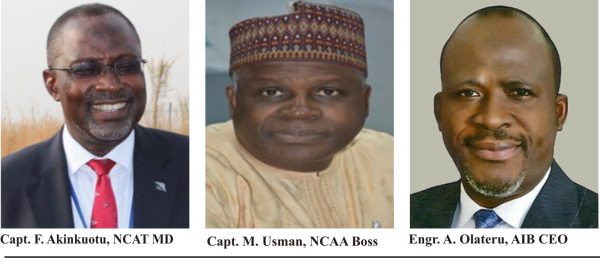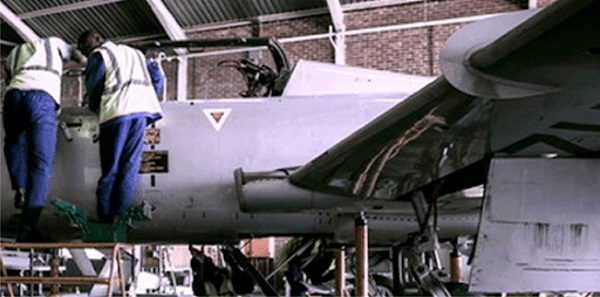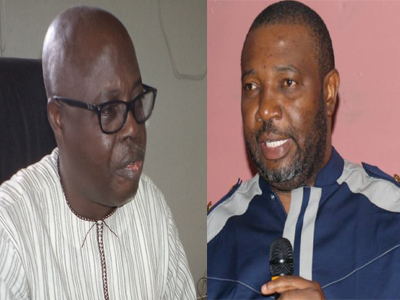CILT Elections: The Intrigues, Politicking and Drama
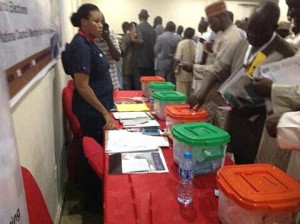
In Nigeria, the norm in politics is to embark on 95% politicking and 5% governance even after electioneering. However, the politicking, campaigns, manifestoes and strategies become very dramatic as the elections draw nearer. The just concluded national election of the Chartered Institute of Logistics and Transport (CILT) Nigeria was no different in terms of the intrigues, maneuvering and drama. It was a miniature of the primary elections in any Nigerian political party only with a little extra professional nous.
The election was characterized by last minute maneuvering, politicking and an ambience of anxiety and tension from the voters’ accreditation stages until the presidential results were announced.
The elections began to gather so much controversy as soon as it was scheduled to hold in Port Harcourt; this sparked an uproar that almost consumed the institute. Majority of the complainants were members residing in Lagos, while some felt Port Harcourt couldn’t guarantee their safety, others had stated that the decision was orchestrated by the former president, General U.T. Usman to limit the chances of the Mr. Ibrahim Jibril (the favourite presidential candidate of Lagos CILT members). Following the riot in Lagos over the venue of the elections, international body had to caution Nigeria and even threatened to sanction the nation before the Council decided to move the elections to Abuja.
Despite this arrangement, the Lagos members showed resilience as most of them embarked on a hazardous journey to Abuja via road. The journey wasn’t rosy but most of the electorates had agreed in the bus to vote in Jibril for President, Alban Igwe for Deputy President and other favoured candidates who had links to major agencies like the Nigerian Ports Authority (NPA), Nigerian Maritime Administration and Safety Agency (NIMASA), Nigerian Shippers’ Council (NSC), Federal Airports Authority of Nigeria (FAAN), etc. One of the members had stated in the bus that “judges, senators, professors, etc. had failed in the leadership of CILT; hence, it was time to vote in the practitioners”. These plans they stuck to and they were carried out to the letter as their candidates all emerged victorious.
The delegates from Lagos arrived Abuja by road in two separate luxurious buses provided by NIMASA and the Shippers’ Council at about 10:30pm, yet they were agile enough to begin campaigning as soon as they alighted in Abuja.
Mr. Ibrahim Jibril and Mr. Alban Igwe (the would-be president and deputy president) were on ground to personally welcome all delegates from Lagos- something their opponents seldom did. The politicking began that night and it also included free dinner for all Lagos delegates.
At the wee hours on Saturday October 28th, Lagos members were the first to rise despite going to bed late after a hectic journey the previous day. It was not waking early to avoid the rigours of the Lagos traffic that spurred them out of their beds but the desire to begin the process they called ‘change’ in the CILT. Their anxiety had to be stretched further when they found out that the national environmental sanitation had to be observed, hence the programme for the day had been altered from 9am to 11am. Nevertheless, the situation provided ample time for more campaigning. This was something the new Deputy National President, Mr. Alban Igwe used to the fullest as he went around meeting new people with a warm smile and introducing himself as an aspirant for the deputy national president and soliciting their votes. This action helped him greatly as he pulled 150 votes to beat Professor Callistus Ibeh who got 110 votes. Alban must have met over 50 people between Friday night and Saturday morning and it gave him the edge.
For the presidential race, the three contestants were Mr. Ibrahim Jibril, Professor Kayode Oyesiku and Chief Igna Owums. It was full of drama; while Prof. Oyesiku and Mr. Jibril moved around campaigning and soliciting support, Chief Owums engaged in a long discussion with the Director General of the Nigerian Institute of Transport Technology (NITT) Dr. Aminu Musa Yusuf. Ironically, even the admirable DG NITT couldn’t guarantee his friend (Chief Owums) of his vote. Little wonder, Chief Owums decided to step down after giving his impressing CV and an interesting manifesto which promised an outstanding performance of the Council in Nigeria, upgrading Women in Logistics and Transport (WiLAT), intensive membership drive, among others.
According to Owums, who had been a chartered fellow of the institute (FCILT) for over 12 years and a member of the CILT Nigerian Council for 10 years; it was the right time to allow younger generations call the shots at the institute. However, the question one may ask is- why did it take Chief Owums so long to realize that. Why did he have to get the form, print flyers, solicit votes and wait until the point of presenting his manifesto before deciding to step down? Some members asserted that he was playing out a script, but who wrote that script and what was the motive? Your guess is as good as mine!
Subsequently, the presidential battle became a tussle between Jibril and Oyesiku, it was a battle between a candidate representing majority of the practitioners with the support of members from NPA, NIMASA, NSC, FAAN and others, while the other candidate represented the academia with the patronage of the trainers and the alleged endorsement of the erstwhile president.
If the former president, Gen. Usman had preferred Prof. Oyesiku it didn’t show when he gave a speech just before the polls. He had admonished the voters to choose the right candidate which they felt would protect the interest of the institute and not prioritize their own interests or elect a selfish candidate.
However, General Usman gave a shocking remark to our correspondent when asked to comment on the high points of his administration. He said he had not been available to run the institute within the last two years and referred the MMS Plus journalist to speak to his deputy, Prof. Oyesiku who had mysteriously vanished from the election venue before the results were called.
Gen. Usman’s leadership style (in absentia) leaves a lot to be desired, although his unavailability explains why all efforts to get him for an exclusive chat by our correspondence in recent times had been futile. Usman had also been accused of operating a dictatorial style of leadership, some of the traits he acquired from his military background which didn’t augur well in the institute.
Prior to the counting of the votes, the sheer support of practitioners and their numbers gave their presidential candidate the edge and they sensed it as they moved around with smiles taking pictures and planning for the victory party. Their optimism about success was also displayed by their candidate, Jibril who was snapping pictures with his many followers and receiving accolades and congratulations hours before the votes were counted.
On the other hand, Prof. Oyesiku was in the company of few friends in what seemed like a consolation party as Oyesiku made futile efforts to conceal his disappointment. The results would explain the events as Jibril had about 80% of the votes with 217 votes out of 272, while Oyesiku got 48 votes about 18% and 7 votes were invalid.
For the new deputy national president, Alban Igwe; he confessed to our correspondent that he was tensed and anxious few hours before the votes were counted.
The method deployed for counting the votes was an open system where total votes cast were counted out from the box first before the invalid votes were removed and the audience counted together with the electoral officers, chaired by the former Director General of NIMASA, Dr. Ade Dosunmu. The ambience during the counting was full of tension and it reached the climax when the deputy national president votes were counted as each candidate was called almost simultaneously and the electoral officer fanned the flames of anxiety as he pronounced the surnames of both candidates; Igwe and Ibeh to sound alike each time.
There was also more controversy when the figures from the votes for the position of the deputy national president couldn’t tally. From the figures announced; Alban Igwe got 150 votes, Callistus Ibeh got 110 votes and 8 votes were recorded as void/ invalid, but the total number of votes cast was 226. Two votes weren’t accounted for and yes, those two votes remain a puzzle. Please if you could solve this, report to MMS Plus, you might get a handsome reward. However, the saga from this required the expertise of the Electoral Chairman, Dr. Ade Dosunmu who explained that when such things happen in an election, it shouldn’t be an issue since the votes wouldn’t make a difference if added to the loser or when subtracted from the winner.
More drama, reactions and side talks from the CILT elections as well as the expectations from the electorates would also be published next week. Don’t miss it.
By Kenneth Jukpor



